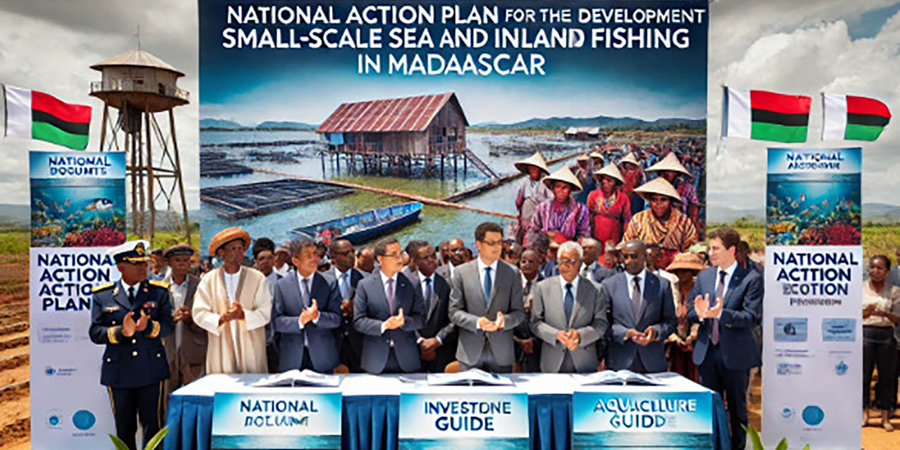August 16, 2024
Madagascar launches five-year action plan to boost fish production

Madagascar has unveiled a five-year national action plan aimed at increasing fish production to meet the rising seafood demand of its growing population, SeafoodSource reported.
The initiative, launched by the country's Ministry of Fisheries and the Blue Economy, aims to boost the country's annual fish production by 116% - reaching 307,000 metric tonnes (MT) by the end of 2028. This compares with the current production of 142,000 MT.
Minister for Fisheries and the Blue Economy, Paubert Mahatante, emphasised the importance of increasing national fish production to address the anticipated demand.
The new plan outlines several measures, including the introduction of fishing quotas, the creation of marine protected areas, and diversification of income sources for fishing communities over the next five years. However, the plan heavily focuses on aquaculture as the most feasible path to achieving the production target.
Malagasy aquaculture production is currently estimated at 30,000 MT annually, making up 21% of the country's total fish production. Koko Chantal de Cupertino, Madagascar's regional director of fisheries and the blue economy, highlighted aquaculture as the most viable short-term route to reaching the ambitious production goals. Cupertino, also a member of the Annual Aquaculture Network for Africa (ANAF), expressed optimism that the sector could become a key pillar of the country's socioeconomic development.
Examples of successful aquaculture projects in Madagascar include shrimp farms operated by Paris-based Unima Distribution, whose products won two awards at the 2023 Seafood Excellence Global Awards. Additionally, China has invested in aquaculture production on the island.
Despite the optimism, challenges remain. Yannick Memee, regional coordinator for the Western Indian Ocean at the Fisheries Transparency Initiative (FiTI), cited poor infrastructure, weak regulatory enforcement, and environmental concerns as hurdles to sustainable growth in fish production. He pointed out that inadequate roads, electricity, and cold chain facilities in rural areas limit access to markets and lead to post-harvest losses.
Climate change poses another threat to Madagascar's fish output, with rising sea temperatures and ocean acidification exacerbating the situation. Overfishing in the country's waters has also put pressure on fish stocks. Memee stressed the need for better enforcement of fishing regulations and improved patrol and surveillance capabilities to combat illegal fishing activities by foreign vessels.
Madagascar has begun addressing these issues through its participation in FiTI and the release of transparency reports. The new plan includes fishing restrictions, but Memee emphasised the need for a comprehensive regulatory framework and stakeholder input to ensure equitable and effective rights allocation.
Officials hope the five-year plan will help overcome these challenges, improve domestic production, and attract younger generations to pursue careers in fishing and aquaculture. Minister Mahatante emphasised the importance of capacity building and education to sustain small-scale fishing for future generations.
- SeafoodSource










